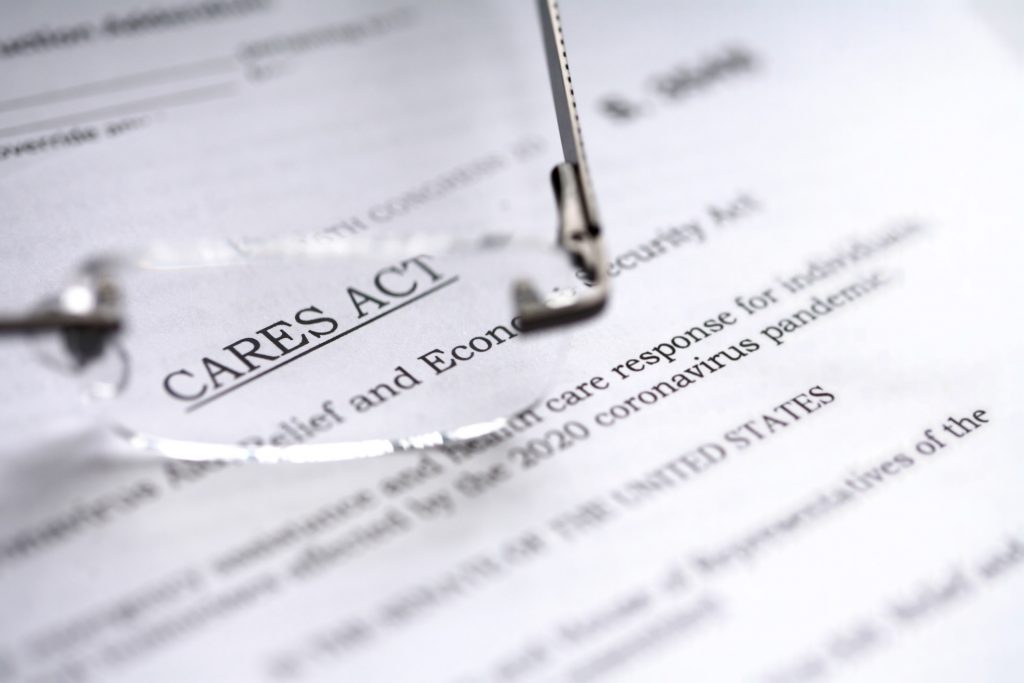Understanding the CARES Act and what it means for independent practices

The Coronavirus Aid, Relief, and Economic Security (CARES) Act was officially signed into law on March 27, 2020. The CARES Act offers financial relief for many individuals and small businesses. There are also a number of provisions in the Act that are beneficial to healthcare professionals. Independent physicians should be aware of several immediate key takeaways from the CARES Act.
The Centers for Medicare & Medicaid Services (CMS) is increasingly recognizing the critical need for and benefits of telehealth, noting that “with the emergence of the virus causing the disease COVID-19, there is an urgency to expand the use of technology to help people who need routine care, and keep vulnerable beneficiaries and beneficiaries with mild symptoms in their homes while maintaining access to the care they need.”
The CARES Act opens up additional opportunities for independent physicians to take advantage of telehealth for their patients. Providers no longer need a pre-existing relationship with a patient to provide telehealth services and Federally Qualified Health Centers (FQHCs) and Rural Health Clinics (RHCs) are now sites of care for telehealth.
The American Medical Association (AMA) has outlined the provisions of the CARES Act that expand telehealth:
- Health Resources and Services Administration (HRSA) grant programs that promote the use of telehealth technologies for health care delivery, education, and health information services are included with a specific emphasis on rural health centers. The use of telehealth in rural or medically underserved communities offers providers more flexibility to screen, monitor care, or treat their patients with, or at risk of contracting, COVID-19 while avoiding exposure to others.
- A high deductible health plan may include telehealth services for free and continue to be characterized as a high deductible health plan.
- The HHS Secretary has the authority to waive requirements during a national emergency and has allowed for increased Medicare telehealth flexibility and uses during COVID-19 pandemic.
- The Secretary allows for enhanced use of telehealth in Medicare for federally qualified health centers (FQHCs) and rural health clinics during the emergency period. Payment for these services can be determined by the Secretary or can be comparable to the telehealth rates currently paid for similar services.
- There is also a temporary waiver of the requirement for face-to-face visits between home dialysis patients and physicians. (Section 3705) Telehealth may be used to conduct face-to-face encounters prior to recertification of eligibility for hospice care.
To provide financial relief for healthcare providers, the CARES Act boosts Medicare payments by 2 percent through the end of 2020 for physicians, hospitals, nursing homes, and home health. In addition, the Act requires all private insurance plans, Medicare, and Medicaid to cover COVID-19 treatments and vaccine and makes all coronavirus tests free.
Given the critical need for healthcare providers during the COVID-19 pandemic, the CARES Act also addresses the issue of liability for volunteers who offer their help during the emergency response. According to the AMA fact sheet, “physicians who provide volunteer medical services during the public health emergency related to COVID-19 have liability protections. These new protections are in addition to those provided by the Volunteer Protection Act of 1997. Volunteers are defined as those who are not paid for their services.”
